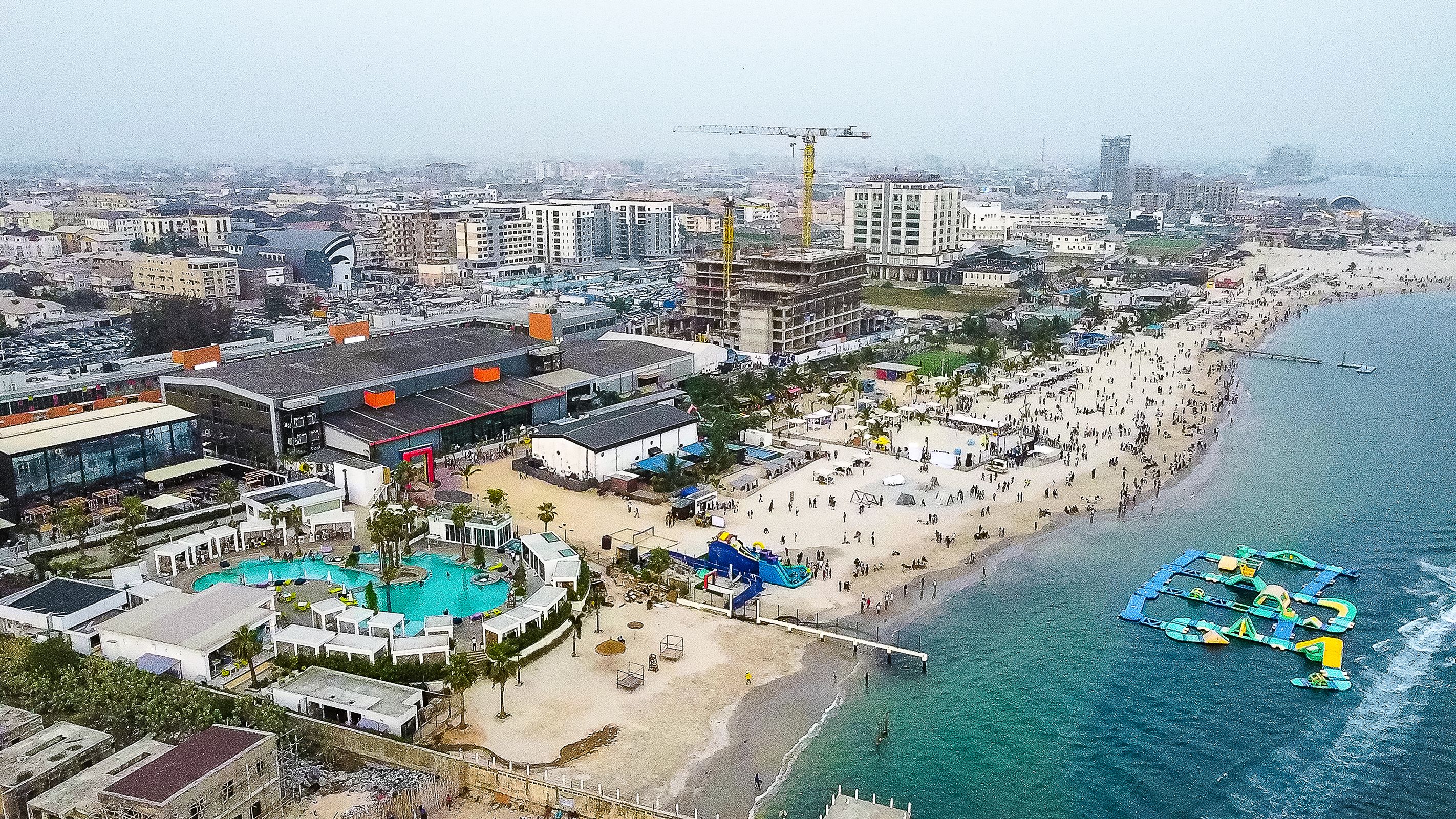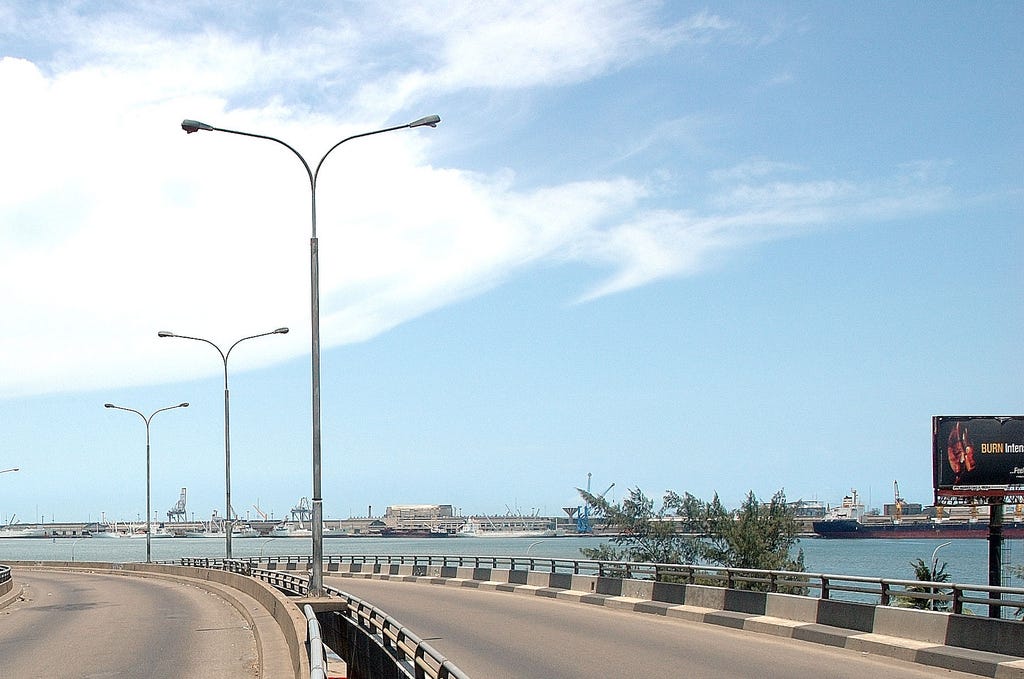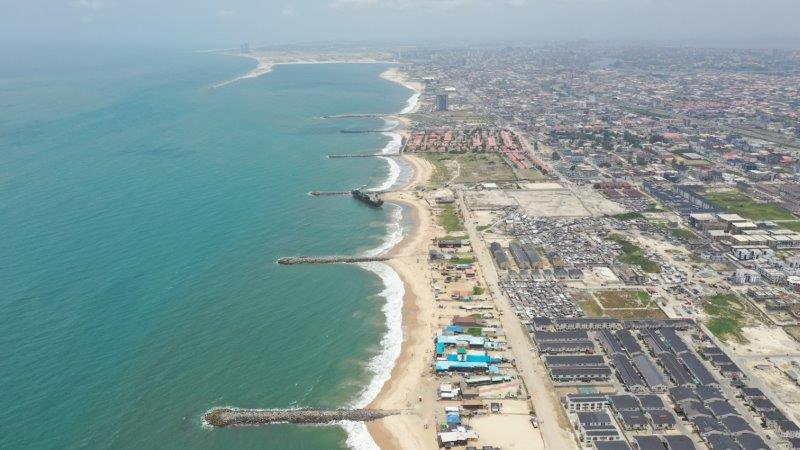The Federal government has insight into plans to revamp major roads leading to the Atlantic Ocean as it seeks to tap into its blue economy market. Nigeria’s federal government has identified the blue economy as a segment that can transform NIgeria’s economic landscape as it seeks to capitalize on this. The government has laid down some groundwork to facilitate the integration of the blue economy into its economic system. One of these plans is revamping major roads leading to the Atlantic Ocean and a ministry to manage the sector.
It is estimated that once implemented, the sector will bring in more than $7 trillion in revenue for the government. In Rivers State, towns such as Soku, Belema, and Oyorokoto lead to the Atlantic Ocean. They form the centre of fish stock, fresh from the waters, and provide rare tourism features to domestic and foreign tourists. Furthermore, they provide the backbone of the economic treasure that forms the bedrock of the blue economy. The government seeks to improve major roads in these towns to implement exploration into the blue economy effectively.
The Scope of Works for Nigeria’s Revamp of Major Roads Leading to the Atlantic Ocean
The federal government has already put in place $153M to construct the Trans-Kalabari Highway, which will connect several major towns. The construction of the road is in a bid to improve some of the major roads leading to the Atlantic Ocean, such as one to Kalabari. The town of Kalabari is one of the closest to the ocean, as it shares a boundary with the Atlantic Ocean. Other roads, such as the FG/NLNG Road, which is currently under construction, will soon open Bonny Island to the state capital. 
This will also create a route to the ocean and open up the economy on that axis. Recently, the Rivers State Government, led by Governor Sim Fubara, inaugurated a segment of the Unity Road, which cost his one-year-old administration close to 11.1 billion naira to complete. This segment is called Ngo Town, and the road tracks off from the main Unity Road, which begins in Ogoni, goes to Opobo, and then to Andoni. There are plans to extend the road to the closest town near the Atlantic Ocean, Oyorokoto.
The Significance of the Revamp Project Across Nigeria
The revamp of major roads leading to the Atlantic Ocean in a bid to tap into the blue economy is a project the government is invested in. Nine of the 36 states in Nigeria border the Atlantic Ocean. Twenty-five per cent of the Nigerian population is found in the coastal states. The project will facilitate improving transportation services to and from the Atlantic Ocean. It will also ensure that these states are more easily accessible to most Nigerians, apart from guaranteeing seamless travel. Once fully implemented, the project will boost the country’s revenue as a new economic system will be realized and added to the economy. The blue economy will also provide employment opportunities to Nigerians as they can earn an income from the system. This may entail being absorbed into the fishing industry, the tourism industry, or even the transportation industry. 
Other Similar Road Projects Currently in Progress In Nigeria
Apart from the revamp of major roads leading to the Atlantic Ocean, President Bola Tinubu has approved the commencement of the design of the 1000-kilometre highway project. His approval of the project was echoed by the minister of works, David Umahi, during an inspection visit on the Lagos-Calabar Coastal highway. The Sokoto-Badagry construction project is fundamental in improving the road transport sector in Nigeria. Once completed, the coastal road would be a vital link in connecting various country regions. This will include linking the region’s South-West, South-South, North-East, North-West, and North-Central roads.
Also read:
$3 Billion Port Harcourt-Maiduguri Rail Link Project Recommences in Aba, Eastern Nigeria.
